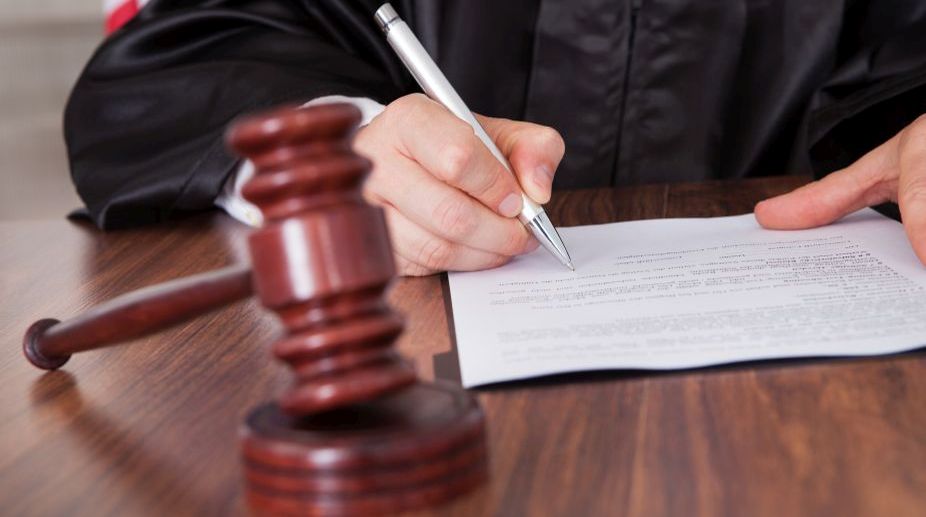India’s Got Latent: SC issues notice on YouTuber Ashish Chanchlani’s plea against FIRs
SC issues notice on YouTuber Ashish Chanchlani’s plea to quash or transfer FIR in India’s Got Latent case; tagged with Ranveer Allahabadia’s petition.

Representational image (Photo: Fcaebook
More than two decades after it triggered a political landslide, a case arising out of the hawala Jain diaries has been closed with a court discharging SK Jain, his employee JK Jain and others of charges of Foreign Exchange Regulation Act violations.
Additional Chief Metropolitan Magistrate Jyoti Kler, in a judgement pronounced recently, discharged SK Jain and JK Jain, the alleged writer of the dairies, Mohd Ameer Deen Habib and SSO Syed Arif, saying there was no evidence to prove charges of violation of foreign exchange.
Advertisement
The Enforcement Directorate (ED) had alleged that SK Jain had converted foreign currency into Indian rupees without obtaining permission from the Reserve Bank of India (RBI).
Advertisement
The ED had chargesheeted JK Jain with abetting the crime.
“In order to substantiate the charge under Section 8(1) and 8(2) of FERA, at least the broad essential ingredients of the alleged charge has to be shown. But there is total absence of the ingredients even by way of allegation, much less in matter of prima facie proof,” the court said.
“There is no evidence to show that there was any person from whom the foreign exchange was received. There is no evidence as to how the foreign exchange was acquired.”
The case was an offshoot of the “Jain Hawala Diary Case” registered by the Central Bureau of Investigation (CBI) in 1991. The CBI’s cases against many political bigwigs had fallen flat in the Supreme Court due to lack of any corroborative evidence.
The CBI had seized documents which it claimed had revealed that J.K. Jain had been receiving money from different sources including S.S.O. Syed Arif for and on behalf of the Jain brothers.
J.K. Jain was working in Bhilai Engineering Corp Co while Habib and Arif were partners of a Mumbai-based company.
During the pendency of the complaints, two accused, N.K. Jain and B.R. Jain, expired.
It was alleged that the foreign exchange was provided by Jains to Ameer and Arif who were businessmen.
The Supreme Court held that entries in books of account alone are not sufficient to charge any person with liability.
“Transaction will also have to be proved and entry can only be used as corroborative evidence to other evidence proving the transaction as such entry amounts an admission against the maker,” the court said.
The scandal involved payments allegedly sent by politicians through four hawala brokers.
Those whose names had cropped up in the case included BJP leader L.K. Advani, late Congress leaders V.C. Shukla, Madhavrao Scindia and P. Shiv Shankar and Janatal Dal leader Sharad Yadav. They were all acquitted following the Supreme Court judgement.
The ED had alleged that the accused were involved in 26 illegal transactions and converted around $2,26,50,000 into Indian currency from 1988 to 1991.
The agency said that the foreign exchange was provided by Jains to Habib and Arif and they were in regular touch with one another.
“The phone call details pertaining to 1992-93 and 1995 while transactions pertain to 1988 till 1991. In such a scenario the phone calls between accused (Ameer and Arif) and accused (S.K. Jain) cannot at all be connected with the alleged unauthorized transactions of conversion of foreign exchange,” the court said.
The court pointed out that ED had not led any cogent evidence to show that the entries relate to dollars and dollars alone and nothing else.
“No foreign exchange admittedly was recovered during the search of premise of accused. No other proof of any transaction was led by the complainant,” the court held.
“No evidence was led by the complainant (ED) to exclude such like possibilities and to suggest that it was nothing else but foreign exchange.
“Burden to prove that it was nothing but foreign exchange conversion rate was upon the complainant.”
The accused had contended that the complaint was based on surmises and presumptions raised by the probe agency.
Advertisement